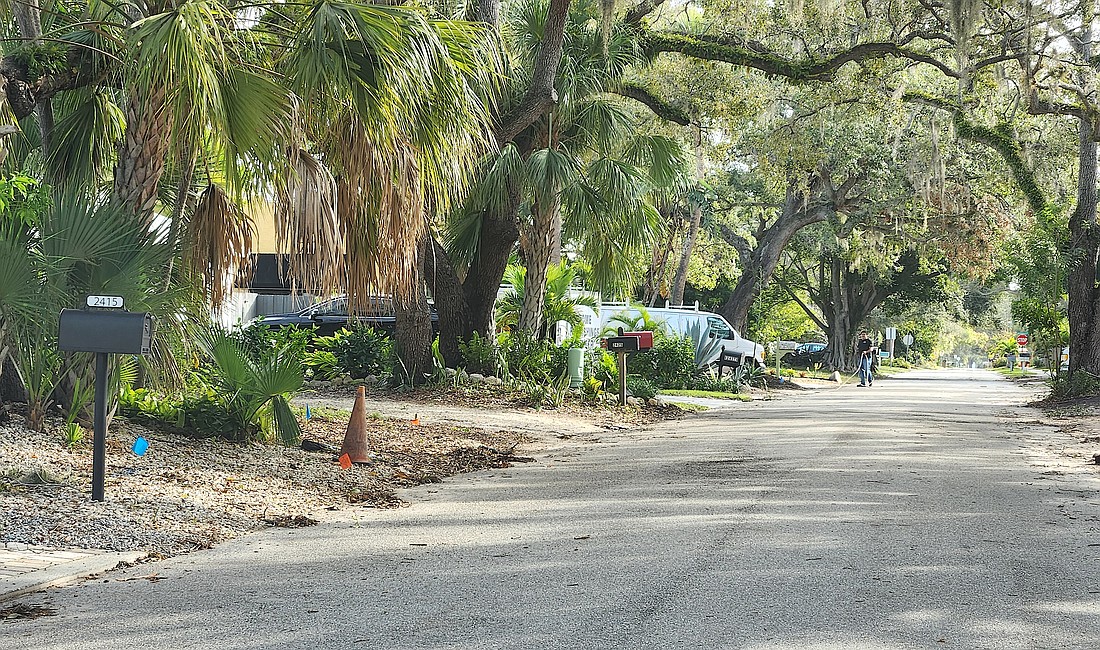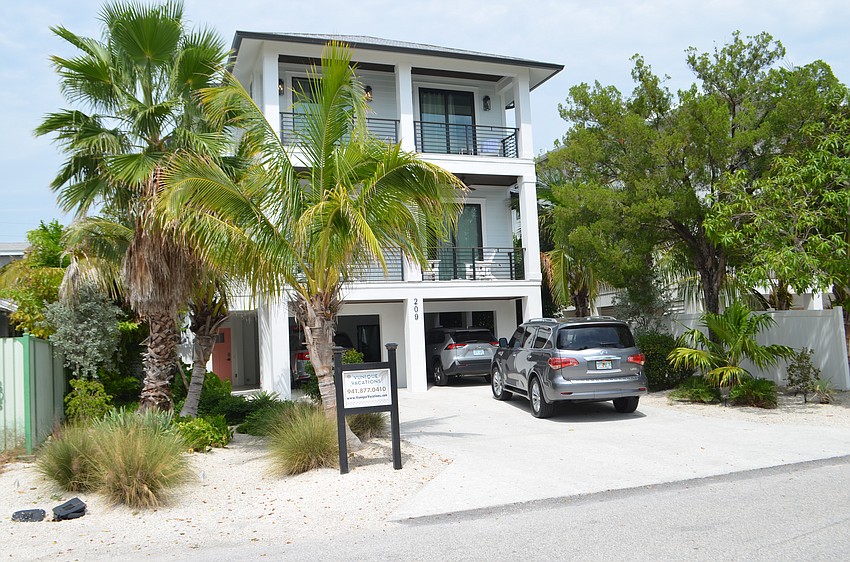- April 27, 2024
-
-
Loading

Loading

Beginning July 1, owners of vacation rental homes throughout the city will be required to register their properties with the city of Sarasota. At its Feb. 5 meeting, the City Commission by a 4-1 vote approved on second reading expanding the ordinance from the barrier islands to citywide.
Likening the ordinance to killing an insect with a sledgehammer, Commissioner Erik Arroyo cast the lone dissenting vote.
Owners of short-term rentals can register their properties July 1-Oct. 31 with the ordinance going into effect Jan. 1, 2025. The cost to register is $500, which includes an initial safety inspection by the city, with an annual renewal fee of $350 and a re-inspection fee, should one be necessary, of $100.
On Nov. 6, 2023, commissioners approved an increase of those fees on properties under the prior vacation rental ordinance in an attempt to recover costs to the city. Those fees could be pre-empted by legislation working its way through Tallahassee. Senate Bill 280, which was approved by that chamber on Feb. 1, would limit local governments to an application fee of $150 and a renewal fee of $50.
During the Jan. 2 commission meeting, City Attorney Robert Fournier said the legislation could be invalidated by legal precedent.

“There is case law that says when you have a regulatory fee like this, the local government is entitled to recoup its costs, so it's definitely contrary to that,” he said.
Under the city’s prior ordinance, which covered the barrier islands only, there were 135 properties registered. Software employed by the city indicates more than 700 homes operated as vacation rentals on the city’s mainland, about which residents have complained about disruptions to the ease of enjoyment of their properties.
The ordinance does not apply to owner-occupied homes that offer rooms for short-term rent. On first reading on Jan. 2, commissioner-recommended changes to the ordinance include:
Arroyo again raised his consistent objection to the ordinance that annual fees and inspections place an undue burden on property owners, and that it is contrary to matters of property rights.
“There are 135 rentals on the barrier islands and the cost to the city was $130,000 a year, and it's not most of the residents' fault that the city incurred such a cost on its own accord,” Arroyo said. “Somewhere along the line we became not just anti hotel houses, but anti short-term rentals. It’s my belief that the right to derive income from property is a fundamental property right.”
“This is not something that was initiated by this commission or by the staff. This was initiated by the residents of our city whose neighborhoods are being commercialized,” said Vice Mayor Jen Ahearn-Koch. “The residents came up with this solution … to keep people safe. Let's do that through having somebody to contact in case they're having big parties at 3 a.m., having people park in the appropriate place and making sure that it's clean and there's not trash all over the place.
"I don't think anyone in our city has ever been anti-vacation rental. This is really geared towards non-homeowner-occupied rentals that are commercial uses and they are coming into neighborhoods and destroying the neighborhoods.”
Hiring and training of additional staff to manage the program could take as long as five months. Operation of a vacation rental anywhere in the city without a certificate of registration after Jan. 1, 2025, will be a violation of the ordinance.
Implementing the expansion will require three new staff members to register and inspect properties and monitor regulatory compliance. A new fee schedule for vacation rentals was approved by a 4-1 vote, with Arroyo opposed, on first reading. The City Commission adopted the increased fees and renewal/inspection frequency for vacation rentals on second reading on Nov. 6, 2023, and staff estimates the program should pay for itself. If not, future adjustments may be made.
That is, unless the state legislature preempts the fees.
Staff estimated a citywide program would cost $315,874 per year, including Granicus, the web-crawling software used by the city to identify properties operating as short-term rentals. Currently the cost to the city is $130,689 to register, inspect and monitor the barrier islands within the city limit.
Correction: This story was updated to correct dates referenced.